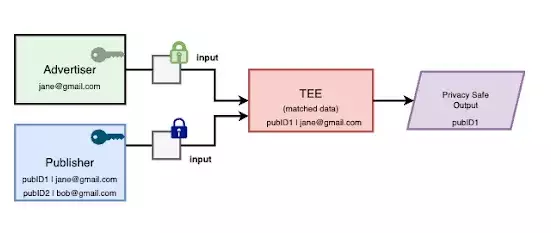As privacy regulations evolve and consumer expectations shift, tech giants like Google are under increasing pressure to rethink how they manage user data. The latest initiative, known as “confidential matching,” seeks to bridge the gap between stringent privacy standards and effective advertising strategies. This innovative approach aims to harness the power of first-party data while safeguarding individual privacy, ultimately redefining the landscape of ad targeting.
Confidential matching leverages technology called Trusted Execution Environments (TEEs). This pioneering system allows for secure processing of collected information without disclosing sensitive data. By encrypting both the advertiser’s and Google’s data, TEE ensures isolation during the data integration process. Consequently, even users with elevated system access cannot manipulate or view the contents within the TEE. This represents a significant advancement in data security, offering businesses a controlled environment for ad targeting.
Historically, Google’s attempts to phase out cookie tracking have faced various hurdles, from regulatory scrutiny to industry opposition. The initial goal of ending cookie usage by 2022 proved overly ambitious as external pressures led to repeated delays. Ultimately, Google chose to abandon its original cookie deprecation plan in favor of alternative solutions that reflect the complex realities of data privacy. Confidential matching emerges as a key component in this revamped strategy, aiming to create a more adaptable method for advertisers while respecting user privacy.
One of the most significant advantages of confidential matching is its alignment with modern privacy expectations. For businesses, this solution not only alleviates concerns related to data sharing but also introduces the option to encrypt data on their end before transmission. This feature could appeal particularly to organizations grappling with stringent legal obligations regarding consumer data protection. By utilizing confidential matching, companies can engage in customized ad campaigns with a greater sense of security.
While the technical intricacies of confidential matching may largely go unnoticed by everyday marketers, the implications for advertising practices are profound. Advertisers can now confidently utilize Google’s tools to reach specified audiences without the fear of compromising consumer data. This seamless blend of privacy and targeted marketing enables businesses to maintain effective communication with their customers while adhering to compliance requirements.
In a digital ecosystem increasingly focused on protecting consumer rights, confidential matching represents a compelling step toward enhanced data privacy. As Google continues to innovate and refine its approach to ad targeting, this initiative highlights the ongoing commitment to balancing effective advertising strategies with the need for user confidentiality. The evolution of data management processes like confidential matching not only addresses marketers’ needs but also reflects a broader industry trend toward ethical data usage that respects individual privacy.
Google’s confidential matching initiative signifies a notable shift in how companies can navigate the delicate interplay between data privacy and targeted advertising. By prioritizing user privacy while enabling effective marketing tactics, Google sets a precedent for future technological advancements in the field of digital advertising. As advertisers adapt to these changes, they can leverage this innovative solution to enhance their outreach strategies, all while maintaining respect for consumer confidentiality.

